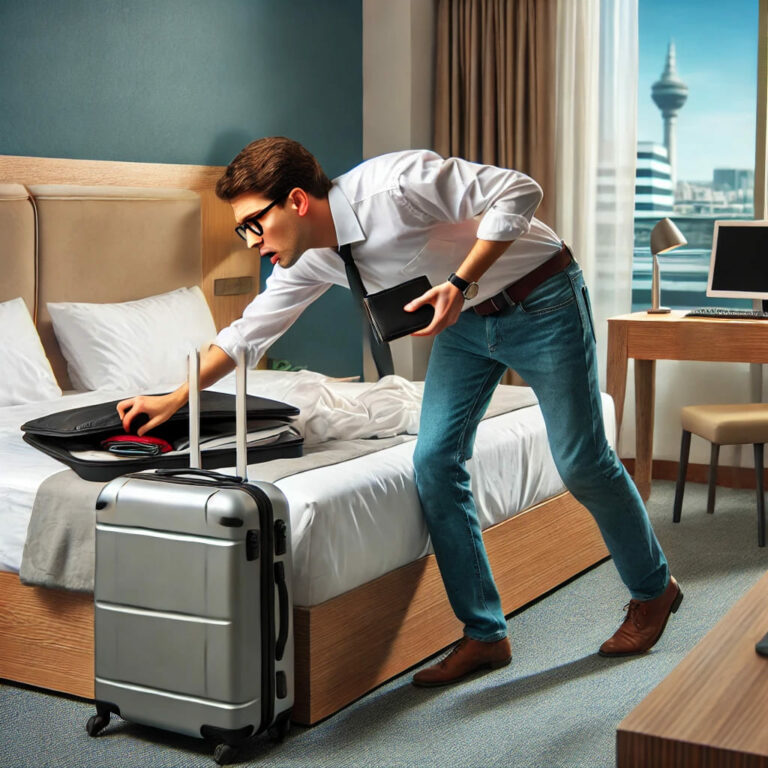In today’s competitive hospitality industry, achieving optimal hotel efficiency is no longer a luxury but a necessity. Hotels that streamline operations, enhance guest experiences, and minimize waste can significantly boost their profitability and reputation. One often overlooked aspect of hotel efficiency is lost and found management, where Terugleveren plays a crucial role.
The Importance of Hotel Efficiency
Hotel efficiency plays a critical role in reducing operational costs while maintaining high standards of service. A well-run hotel maximizes resources, enhances guest satisfaction, and improves staff productivity. Poor efficiency, on the other hand, leads to delays, unnecessary expenses, and a decline in guest experiences.
How Deliverback Enhances Hotel Efficiency
One of the most time-consuming challenges hotels face is managing lost and found items. Guests frequently leave behind valuables, requiring hotel staff to manually track, store, and return these belongings. This process can be inefficient and take up valuable staff time. Terugleveren simplifies this entire operation by automating the lost and found return process, allowing hotels to:
Save Staff Time: Automating lost item retrieval reduces administrative workload, freeing staff to focus on guest experience.
Improve Guest Satisfaction: A quick and hassle-free way to return lost items increases customer loyalty and positive reviews.
Reduce Operational Costs: By streamlining logistics, hotels avoid unnecessary storage expenses and shipping mishaps.
Key Areas to Improve Hotel Efficiency
Smart Technology Integration
Implementing automated systems for check-in, housekeeping, and inventory management can greatly enhance hotel efficiency. Self-service kiosks and mobile apps allow guests to check in and out without long wait times, while smart room controls optimize energy consumption.Optimized Housekeeping and Maintenance
Housekeeping schedules should be data-driven and adaptable to occupancy rates. Implementing software that tracks room cleaning status can help maintain hotel efficiency by reducing idle time and ensuring quick room turnovers.Supply Chain and Inventory Management
Efficient inventory management prevents overstocking and waste. Hotels should leverage data analytics to monitor supply usage, ensuring hotel efficiency across departments.Energy Conservation Measures
Reducing energy waste is an excellent way to improve hotel efficiency. Motion-sensor lighting, energy-efficient appliances, and smart thermostats help hotels lower operational costs while maintaining comfort.Effective Staff Training
A well-trained team is essential for hotel efficiency. Employees should be equipped with the knowledge and tools to handle their responsibilities efficiently, reducing delays and enhancing guest experiences.
Hotel Effectiveness vs. Hotel Efficiency
While hotel efficiency focuses on maximizing output with minimal resources, hotel effectiveness ensures that a hotel achieves its goals in the best possible way. To truly excel, hotels must balance both efficiency and effectiveness, ensuring smooth operations without compromising on guest satisfaction.
Leveraging Technology for Hotel Efficiency
The rise of digital transformation has paved the way for increased hotel efficiency. Property management systems (PMS), AI-powered chatbots, and automated booking platforms reduce the workload on staff, allowing them to focus on guest interactions.
Additionally, predictive analytics help hotels anticipate demand, optimize pricing strategies, and improve hotel efficiency in revenue management. By embracing technology, hotels can stay ahead of the competition while maintaining cost-effectiveness.
Guest Experience and Hotel Efficiency
A seamless guest experience is the cornerstone of hotel efficiency. Personalized services, quick check-ins, and proactive communication enhance guest satisfaction. Hotels that streamline guest interactions through automation and well-trained staff can improve both hotel effectiveness and efficiency.
Measuring Hotel Efficiency
To ensure ongoing improvements, hotels must regularly assess their hotel efficiency. Key performance indicators (KPIs) such as occupancy rates, staff productivity, and operational costs provide insights into areas requiring improvement. Regular audits and guest feedback also help hotels refine their strategies.
Sustainability and Hotel Efficiency
Sustainability initiatives contribute to hotel efficiency by reducing waste and conserving resources. Hotels can implement water-saving measures, recycle waste, and source eco-friendly products to minimize environmental impact while cutting costs.
Conclusie
Improving hotel efficiency requires a combination of technology, effective management, and strategic planning. By focusing on operational optimization, staff training, and guest satisfaction, hotels can enhance both hotel effectiveness and overall efficiency. Incorporating innovative solutions like Terugleveren further streamlines operations, ensuring lost item management is effortless and guest experiences are improved. In an increasingly competitive industry, hotels that prioritize efficiency will not only reduce costs but also build strong, lasting relationships with their guests.


